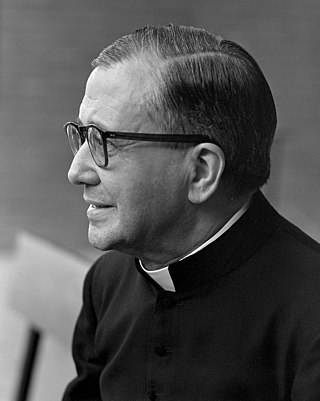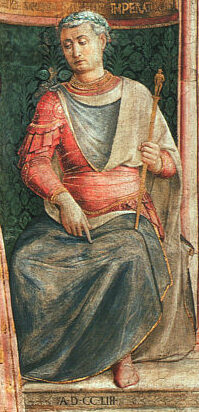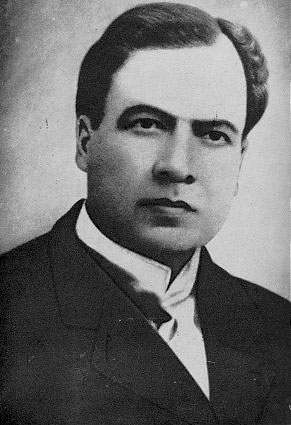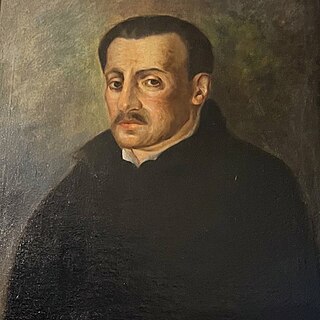Frequent persons on El-salvador's street signs
countries
23 names / 68 streets
José Matías Delgado
 7
José Matías Delgado y de León was a Salvadoran priest and doctor known as El Padre de la Patria Salvadoreña.
7
José Matías Delgado y de León was a Salvadoran priest and doctor known as El Padre de la Patria Salvadoreña.
Gerardo Barrios
 6
José Gerardo Barrios Espinoza was a Salvadoran military officer and politician who served as president of El Salvador on three occasions between June 1858 and his overthrow in October 1863.
6
José Gerardo Barrios Espinoza was a Salvadoran military officer and politician who served as president of El Salvador on three occasions between June 1858 and his overthrow in October 1863.
Alberto Masferrer
 5
Vicente Alberto Masferrer Mónico, known as Alberto Masferrer, was a Salvadoran essayist, philosopher, fiction writer, and journalist, best known for the development of the philosophy of 'vitalismo'....
5
Vicente Alberto Masferrer Mónico, known as Alberto Masferrer, was a Salvadoran essayist, philosopher, fiction writer, and journalist, best known for the development of the philosophy of 'vitalismo'....
Anthony of Padua
 5
Anthony of Padua, OFM or Anthony of Lisbon was a Portuguese Catholic priest and friar of the Franciscan Order.
5
Anthony of Padua, OFM or Anthony of Lisbon was a Portuguese Catholic priest and friar of the Franciscan Order.
Francisco Morazán
 4
José Francisco Morazán Quesada was a liberal Central American politician and general who served as president of the Federal Republic of Central America from 1830 to 1839. Before he was president of...
4
José Francisco Morazán Quesada was a liberal Central American politician and general who served as president of the Federal Republic of Central America from 1830 to 1839. Before he was president of...
Manuel Enrique Araujo
 4
Doctor Manuel Enrique Araujo was a Salvadoran politician and physician who served as president of El Salvador from 1 March 1911 until his death on 9 February 1913 to his injuries sustained in an...
4
Doctor Manuel Enrique Araujo was a Salvadoran politician and physician who served as president of El Salvador from 1 March 1911 until his death on 9 February 1913 to his injuries sustained in an...
Helena, mother of Constantine I
 3
Flavia Julia Helena, also known as Helena of Constantinople and in Christianity as Saint Helena, was an Augusta of the Roman Empire and mother of Emperor Constantine the Great. She was born in the...
3
Flavia Julia Helena, also known as Helena of Constantinople and in Christianity as Saint Helena, was an Augusta of the Roman Empire and mother of Emperor Constantine the Great. She was born in the...
Manuel Gallardo
 3
Manolo A. Gallardo was an Argentine boxer who competed in the 1924 Summer Olympics. In 1924 he was eliminated in the second round of the middleweight class after losing his fight to Roger Brousse.
3
Manolo A. Gallardo was an Argentine boxer who competed in the 1924 Summer Olympics. In 1924 he was eliminated in the second round of the middleweight class after losing his fight to Roger Brousse.
Xōchiquetzal
 3
In Aztec mythology, Xochiquetzal, also called Ichpochtli Classical Nahuatl: Ichpōchtli, meaning "maiden"), was a goddess associated with fertility, beauty, and love, serving as a protector of young...
3
In Aztec mythology, Xochiquetzal, also called Ichpochtli Classical Nahuatl: Ichpōchtli, meaning "maiden"), was a goddess associated with fertility, beauty, and love, serving as a protector of young...
Josemaría Escrivá
 2
Saint Josemaría Escrivá de Balaguer y Albás was a Spanish Roman Catholic priest. He founded Opus Dei, an organization of laypeople and priests dedicated to the teaching that everyone is called to...
2
Saint Josemaría Escrivá de Balaguer y Albás was a Spanish Roman Catholic priest. He founded Opus Dei, an organization of laypeople and priests dedicated to the teaching that everyone is called to...
Saint Anne
 2
According to apocrypha, as well as Christian and Islamic tradition, Saint Anne was the mother of Mary, the wife of Joachim and the maternal grandmother of Jesus. Mary's mother is not named in the...
2
According to apocrypha, as well as Christian and Islamic tradition, Saint Anne was the mother of Mary, the wife of Joachim and the maternal grandmother of Jesus. Mary's mother is not named in the...
Saint Lawrence
 2
Saint Lawrence or Laurence was one of the seven deacons of the city of Rome under Pope Sixtus II who were martyred in the persecution of the Christians that the Roman Emperor Valerian ordered in 258.
2
Saint Lawrence or Laurence was one of the seven deacons of the city of Rome under Pope Sixtus II who were martyred in the persecution of the Christians that the Roman Emperor Valerian ordered in 258.
Robert Baden-Powell, 1st Baron Baden-Powell
 2
Lieutenant-General Robert Stephenson Smyth Baden-Powell, 1st Baron Baden-Powell, was a British Army officer, writer, founder and first Chief Scout of the world-wide Scout Movement, and founder, with...
2
Lieutenant-General Robert Stephenson Smyth Baden-Powell, 1st Baron Baden-Powell, was a British Army officer, writer, founder and first Chief Scout of the world-wide Scout Movement, and founder, with...
José de San Martín
 2
José Francisco de San Martín y Matorras, nicknamed "the Liberator of Argentina, Chile and Peru", was an Argentine general and the primary leader of the southern and central parts of South America's...
2
José Francisco de San Martín y Matorras, nicknamed "the Liberator of Argentina, Chile and Peru", was an Argentine general and the primary leader of the southern and central parts of South America's...
Tezcatlipoca
 2
Tezcatlipoca or Tezcatl Ipoca was a central deity in Aztec religion. He is associated with a variety of concepts, including the night sky, hurricanes, obsidian, and conflict. He was considered one of...
2
Tezcatlipoca or Tezcatl Ipoca was a central deity in Aztec religion. He is associated with a variety of concepts, including the night sky, hurricanes, obsidian, and conflict. He was considered one of...
Albert Einstein
 2
Albert Einstein was a German-born theoretical physicist who is widely held to be one of the greatest and most influential scientists of all time. Best known for developing the theory of relativity,...
2
Albert Einstein was a German-born theoretical physicist who is widely held to be one of the greatest and most influential scientists of all time. Best known for developing the theory of relativity,...
Rubén Darío
 2
Félix Rubén García Sarmiento, known as Rubén Darío, was a Nicaraguan poet who initiated the Spanish-language literary movement known as modernismo (modernism) that flourished at the end of the 19th...
2
Félix Rubén García Sarmiento, known as Rubén Darío, was a Nicaraguan poet who initiated the Spanish-language literary movement known as modernismo (modernism) that flourished at the end of the 19th...
José Simeón Cañas
 2
José Simeón Cañas y Villacorta fue un presbítero, doctor y prócer de la independencia de El Salvador y Centroamérica; que se desempeñó como vocal de la diputación provincial de Guatemala y diputado...
2
José Simeón Cañas y Villacorta fue un presbítero, doctor y prócer de la independencia de El Salvador y Centroamérica; que se desempeñó como vocal de la diputación provincial de Guatemala y diputado...
Francisco Menéndez
 2
Francisco Menéndez Valdivieso was Provisional President of El Salvador from 22 June 1885 to 1 March 1887, then President of El Salvador from 1 March 1887 until his death on 22 June 1890.
2
Francisco Menéndez Valdivieso was Provisional President of El Salvador from 22 June 1885 to 1 March 1887, then President of El Salvador from 1 March 1887 until his death on 22 June 1890.
Gabriela Mistral
 2
Lucila Godoy Alcayaga, known by her pseudonym Gabriela Mistral, was a Chilean poet-diplomat, educator, and Catholic. She was a member of the Secular Franciscan Order or Third Franciscan order. She...
2
Lucila Godoy Alcayaga, known by her pseudonym Gabriela Mistral, was a Chilean poet-diplomat, educator, and Catholic. She was a member of the Secular Franciscan Order or Third Franciscan order. She...
Saint Vincent
 2
Saint Vincent may refer to:
2
Saint Vincent may refer to:
Saint Nicholas
 2
Saint Nicholas of Myra, also known as Nicholas of Bari, was an early Christian bishop of Greek descent from the maritime city of Patara in Anatolia during the time of the Roman Empire. Because of the...
2
Saint Nicholas of Myra, also known as Nicholas of Bari, was an early Christian bishop of Greek descent from the maritime city of Patara in Anatolia during the time of the Roman Empire. Because of the...
Jesus
 2
Jesus, also referred to as Jesus Christ, Jesus of Nazareth, and many other names and titles, was a first-century Jewish preacher and religious leader. He is the central figure of Christianity, the...
2
Jesus, also referred to as Jesus Christ, Jesus of Nazareth, and many other names and titles, was a first-century Jewish preacher and religious leader. He is the central figure of Christianity, the...